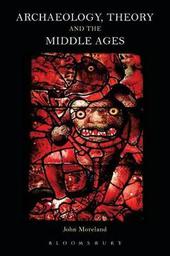
|
Archaeology, Theory and the Middle Ages
Paperback / softback
Main Details
| Title |
Archaeology, Theory and the Middle Ages
|
| Authors and Contributors |
By (author) John Moreland
|
| Physical Properties |
| Format:Paperback / softback | | Pages:368 | | Dimensions(mm): Height 234,Width 156 |
|
| Category/Genre | Medieval European archaeology |
|---|
| ISBN/Barcode |
9780715636893
|
| Classifications | Dewey:930.101 |
|---|
| Audience | | Professional & Vocational | | Postgraduate, Research & Scholarly | |
|---|
|
Publishing Details |
| Publisher |
Bloomsbury Publishing PLC
|
| Imprint |
Bristol Classical Press
|
| Publication Date |
30 June 2010 |
| Publication Country |
United Kingdom
|
Description
In this important volume of collected essays John Moreland demonstrates the ways in which a theoretically informed archaeology significantly enhances our understanding of the early Middle Ages, and indeed of the past more generally. Beginning from the premise that theory must be worked through in data (since abstract theorising conjures up only a historical pictures of the past), he applies a consistent and contemporary body of theory, broadly characterised as 'post-processual', in a series of case-studies. The essays are enhanced by extensive notes and commentary, updating theoretical perspectives on, and data pertaining to, some of the key issues in contemporary archaeology - the role of theory, identities, the appropriation/destruction of the past, gift exchange, object biographies, the influence of our present on the construction of the past, the impact of texts on past societies etc. The result will be of interest not just to scholars and students of the early Middle Ages, but to archaeologists and historians more generally.
Author Biography
John Moreland is Professor of Historical Archaeology, University of Sheffield. He is the author of "Archaeology and Text" (2001), published in the Duckworth Debates in Archaeology series.
ReviewsMoreland (historical archaeology, U. of Sheffield, the UK) has collected in this volume nine previously published articles, adding to each one substantially revised and updated annotation, often in the form of commentary, and quotes from new sources. The articles offer a satisfying overview of the field of early medieval history, including the late Roman era. While the articles examine individual sites and objects, the writing expands to consider larger issues, including theoretical approaches, historiography, and the impact of secularization on religious sites, making this an excellent resource for students and scholars of the history and archaeology of the Middle Ages. Concludes with an exhaustive bibliography.
|